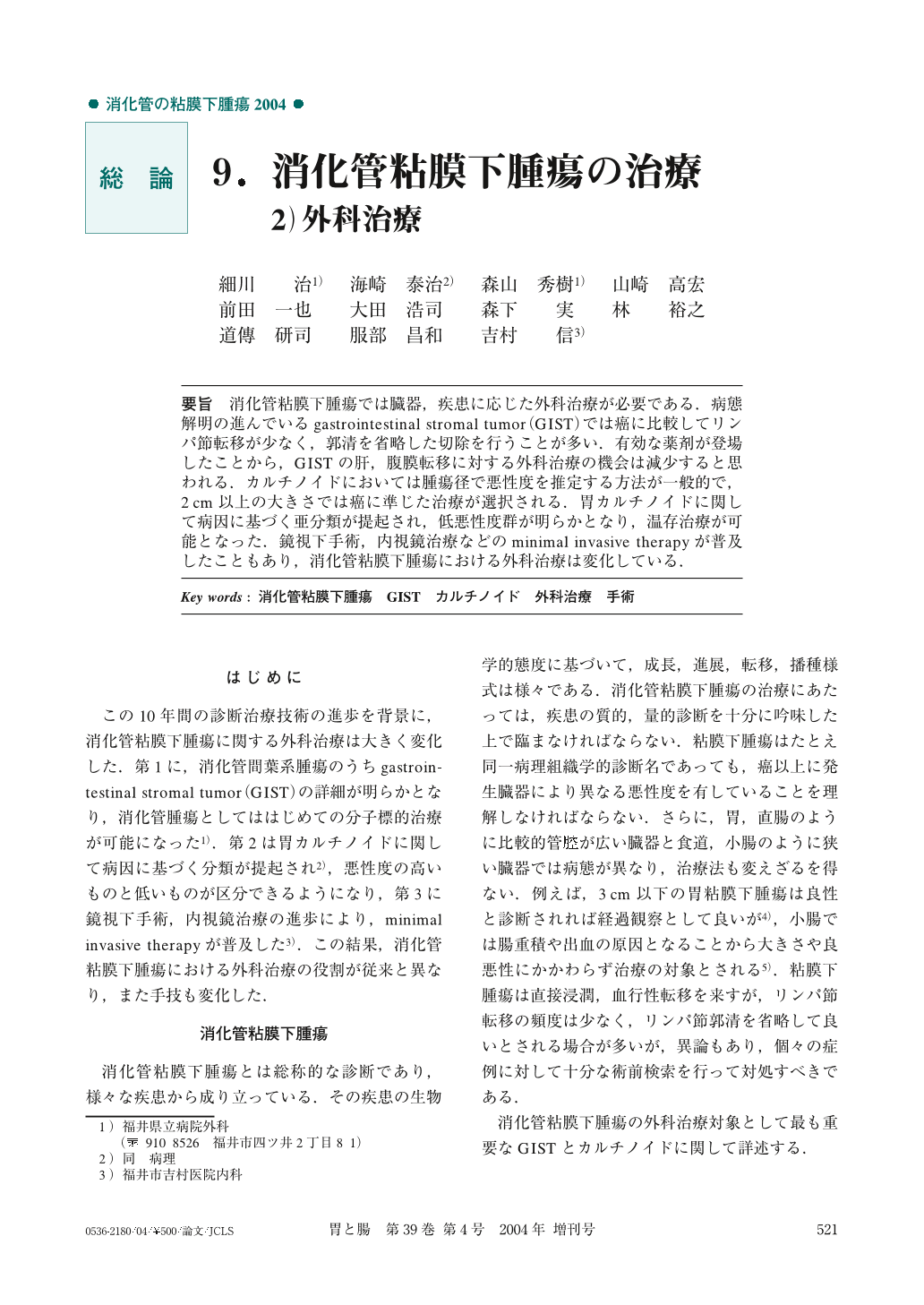Japanese
English
- 有料閲覧
- Abstract 文献概要
- 1ページ目 Look Inside
- 参考文献 Reference
要旨 消化管粘膜下腫瘍では臓器,疾患に応じた外科治療が必要である.病態解明の進んでいるgastrointestinal stromal tumor(GIST)では癌に比較してリンパ節転移が少なく,郭清を省略した切除を行うことが多い.有効な薬剤が登場したことから,GISTの肝,腹膜転移に対する外科治療の機会は減少すると思われる.カルチノイドにおいては腫瘍径で悪性度を推定する方法が一般的で,2cm以上の大きさでは癌に準じた治療が選択される.胃カルチノイドに関して病因に基づく亜分類が提起され,低悪性度群が明らかとなり,温存治療が可能となった.鏡視下手術,内視鏡治療などのminimal invasive therapyが普及したこともあり,消化管粘膜下腫瘍における外科治療は変化している.
A patient with gastrointestinal submucosal tumor should be surgically treated in a way corresponding with the characteristics of both the organ and the disease. Resection without lymph node dissection would be adopted for a patient with gastrointestinal stromal tumor (GIST) because the rate of GIST with lymph node metastasis is extremely low compared with that of gastrointestinal cancers. Surgical treatment for metastasis of GIST to the liver or peritoneum would be avoided because of the discovery of the tyrosine kinase inhibitor (STI571) which is effective in patients with GIST. In gastrointestinal carcinoid, the most important prognostic factor is the size. Patients with carcinoid tumors more than2cm in diameter should be operated on radically as advised for gastrointestinal cancers. Based on pathogenesis, gastric carcinoids were classified into three subtypes and the two subtypes related to hypergastrinemia were identified as inactive. The use of surgical treatment for gastrointestinal submucosal tumors has been reduced because of the development of minimal invasive therapy such as laparoscopic or endoscopic resection.
1) Department of Surgery, Fukui Prefectural Hospital, Fukui, Japan
2) Department of Pathology, Fukui Prefectural Hospital, Fukui, Japan

Copyright © 2004, Igaku-Shoin Ltd. All rights reserved.


